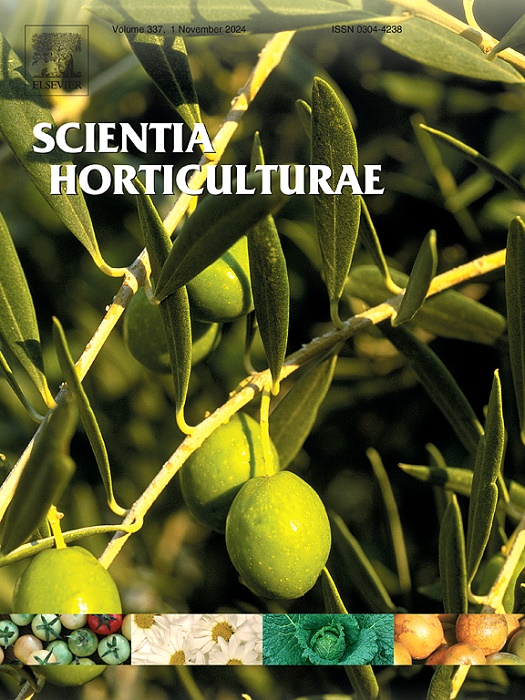CRISPR/Cas技术在蔬菜作物中用于改善生物、非生物胁迫和品质性状:挑战与机遇
IF 3.9
2区 农林科学
Q1 HORTICULTURE
引用次数: 0
摘要
蔬菜是不可缺少的营养来源,是人类饮食的重要组成部分,具有巨大的市场价值。然而,随着全球人口的不断扩大,迫切需要优先考虑高质量蔬菜的消费,以改善健康并解决生物和非生物压力带来的风险。传统的育种方法既耗时又具有挑战性。相比之下,CRISPR/Cas是一种创新的育种方法,具有特异性、精确性、效率、可负担性、生产力和可持续性。本文综述了CRISPR/Cas技术在蔬菜作物改良中的应用,并强调了其在新型蔬菜产品开发中的革命性潜力。该技术解决了蔬菜种植面临的挑战,并通过发展对生物和非生物胁迫的抗性以及提高质量性状,为全球粮食安全做出了贡献。这篇综述综述了基于位点定向核酸酶(SDN)的作物改良方法、Cas变体作为基因组编辑工具的使用,以及与编辑蔬菜相关的挑战。它还详细阐述了CRISPR/ cas编辑性状的监管和商业地位。此外,它还讨论了原生质体和基于人工智能的技术与CRISPR/Cas的整合,以克服编辑挑战,并探讨了CRISPR/Cas在基因组编辑之外的更广泛的功能。CRISPR/Cas技术在开发具有多种理想性状的新型蔬菜产品方面的全部潜力尚未充分实现,但其明智的应用可能会在蔬菜作物改良方面取得重大进展。本文章由计算机程序翻译,如有差异,请以英文原文为准。
CRISPR/Cas technology in vegetable crops for improving biotic, abiotic stress and quality traits: Challenges and opportunities
Vegetables are indispensable nutritional sources, forming a significant part of the human diet and holding substantial market value. However, with the expanding global population, there is an urgent need to prioritize the consumption of high-quality vegetables to improve health and address the risks posed by biotic and abiotic stresses. Conventional breeding methods are time-consuming and challenging. In contrast, CRISPR/Cas is an innovative breeding approach that offers specificity, precision, efficiency, affordability, productivity and sustainability. This review highlights the application of CRISPR/Cas technology in vegetable crop improvement and underscores its potential to revolutionize the development of novel vegetable products. The technology addresses challenges in vegetable farming and contributes to global food security by developing resistance to biotic and abiotic stresses and improving quality traits. The review provides an overview of Site-Directed Nuclease (SDN)-based approaches for crop improvement, the use of Cas variants as genome editing tools, and the challenges associated with editing vegetables. It also elaborates on the regulatory and commercial status of CRISPR/Cas-edited traits. Additionally, it discusses the integration of protoplast and AI-based technologies with CRISPR/Cas to overcome editing challenges and explores the broader capabilities of CRISPR/Cas beyond genome editing. The full potential of CRISPR/Cas technology in developing novel vegetable products with multiple desirable traits is yet to be fully realized, but its judicious application could unlock significant advancements in vegetable crop improvement.
求助全文
通过发布文献求助,成功后即可免费获取论文全文。
去求助
来源期刊

Scientia Horticulturae
农林科学-园艺
CiteScore
8.60
自引率
4.70%
发文量
796
审稿时长
47 days
期刊介绍:
Scientia Horticulturae is an international journal publishing research related to horticultural crops. Articles in the journal deal with open or protected production of vegetables, fruits, edible fungi and ornamentals under temperate, subtropical and tropical conditions. Papers in related areas (biochemistry, micropropagation, soil science, plant breeding, plant physiology, phytopathology, etc.) are considered, if they contain information of direct significance to horticulture. Papers on the technical aspects of horticulture (engineering, crop processing, storage, transport etc.) are accepted for publication only if they relate directly to the living product. In the case of plantation crops, those yielding a product that may be used fresh (e.g. tropical vegetables, citrus, bananas, and other fruits) will be considered, while those papers describing the processing of the product (e.g. rubber, tobacco, and quinine) will not. The scope of the journal includes all horticultural crops but does not include speciality crops such as, medicinal crops or forestry crops, such as bamboo. Basic molecular studies without any direct application in horticulture will not be considered for this journal.
 求助内容:
求助内容: 应助结果提醒方式:
应助结果提醒方式:


